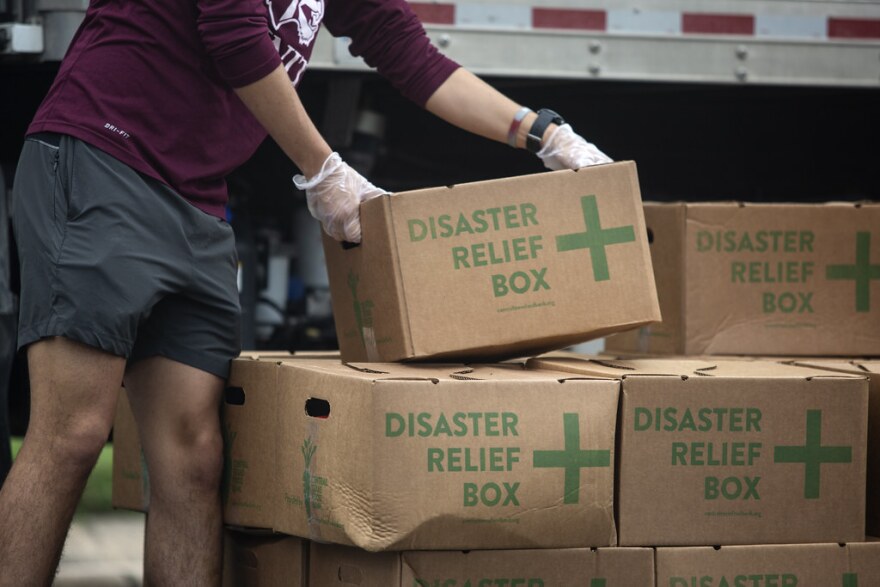Children in 11 Central Texas ZIP codes are at high risk of food insecurity because of COVID-19, a new study finds. And the situation is further compounded by a lack of access to high-speed internet as they try to continue their education online.
The study from the statewide nonprofit Children at Risk says the neighborhoods – which include Del Valle, Montopolis and stretches of East Austin – already had limited access to food before the pandemic. Historically, about a quarter of Texas children are at risk of food scarcity, but the group says that gap has likely widened as a result of coronavirus shutdowns.
The analysis relies on census data showing more than half of children in these neighborhoods already rely on free meals provided by schools. While those meals are being offered on a pick-up basis, the data show many families in these ZIP codes may not have a car. That lack of transportation makes it difficult to get access to food donations at food banks, as well. And, the study notes, some people may fear seeking out assistance because a family member is undocumented.

Still, those fears aren't stopping everyone from lining up outside of food-distribution centers. In March, the Central Texas Food Bank says it saw a 207% increase in clients seeking donations – in Travis County alone. It's important to note the food bank serves a 21-county area.
Bob Sanborn, president and CEO of Children at Risk, says local food banks shouldn't be seeing those surges and that the federal government should expand the SNAP program to cover people who are going hungry because of the pandemic.
The federal government has freed up states to dole out additional SNAP funding to families with children who may be missing school meals, but Texas has yet to take advantage of the program. (Though Gov. Greg Abbott did expand some access to emergency SNAP funding earlier this month.)
"That means that people who should be getting some of this, because they're in the middle of this disaster, have not been receiving those SNAP funds. So that means they have to line up at these food banks. They have to line up at food pantries," Sanborn said. "It's not the system's solution to this problem – pandemic-SNAP is a part of that."
On top of that, school closures could present more stress on working families, who may not have the online resources – or the time – to continue kids' lesson plans amid the pandemic.
"We are asking children – and families – to keep the learning going, right? This is the message from the school district. It's the message from the [Texas Education Administration]," Sanborn said. "And yet, if you don't have food, you can't learn. If you don't have access to a computer, you can't learn. If you don't have access to high-speed internet, that becomes problematic."

The study shows ZIP codes at most risk of seeing students fall behind are those where low-income children may attend low-performing schools – and have limited access to high-speed internet.
While Austin ISD has rolled out Wi-Fi-equipped buses to serve as hotspots for students, Del Valle and Manor ISDs haven't provided similar options for students. This, Sanborn argues, will leave some students behind the curve when schools do eventually reopen.
"We've heard of summer learning gaps. Now we're going to have pandemic learning gaps. [There will be] kids that are months and months behind their more affluent classmates, whose parents are able to spend the time and who have the ability to keep the learning going," he said. "When you're asking some of these poor families who are desperately working to put food on the table, they can't also be teachers."
Children at Risk says the TEA needs to track and report student participation across the state to better understand which students are falling behind.
The analysis shows there are some ZIP codes where children are both food-insecure and have limited resources for online learning. Those three ZIP codes – 78702, 78724 and 78744 – are all east of I-35.
Got a tip? Email Andrew Weber at aweber@kut.org. Follow him on Twitter @England_Weber.
If you found the reporting above valuable, please consider making a donation to support it. Your gift pays for everything you find on KUT.org. Thanks for donating today.



